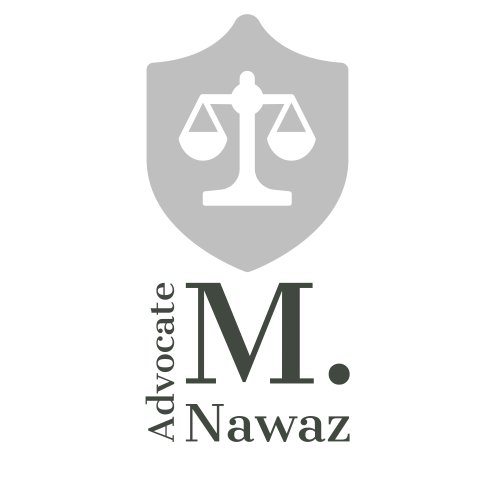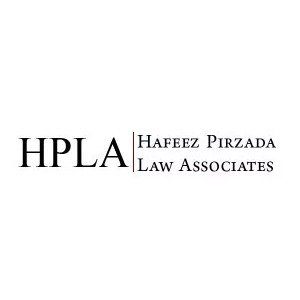Best Marriage Lawyers in Pakistan
Share your needs with us, get contacted by law firms.
Free. Takes 2 min.
Free Guide to Hiring a Family Lawyer
Or refine your search by selecting a city:
List of the best lawyers in Pakistan
Pakistan Marriage Legal Questions answered by Lawyers
Browse our 4 legal questions about Marriage in Pakistan and read the lawyer answers, or ask your own questions for free.
- 2nd marriage without permission
- I've got 2nd marriage after a dispute with my first wife in 2014. She got Khula in 2024 & after getting Khula, she filed a suit of 2nd marriage in the family court
-
Lawyer answer by Mannan Law Associates
She is not competent to initiate legal action against you after obtaining khulla. Thank you.
Read full answer - How much a lawyer charge to court marriage
- If a man want to do court marriage how much expenses he had to bear
-
Lawyer answer by Jeelani Law Empire Karachi Pakistan
In Karachi, the cost for a court marriage can vary, depending on the lawyer's experience, service fees, and any additional legal documentation required. Typically, a lawyer charges anywhere from PKR 10,000 to PKR 30,000 for a court marriage, which covers...
Read full answer - Is there any solution to get 2nd marriage without 1st wife's permission ?
- I want 2nd marriage but my wife is not giving permission. Kindly let me know how I can get permission legally.
-
Lawyer answer by Asma Lawyers In Pakistan
You must apply to the relevant union council For Further help you may visit our profile.
Read full answer
About Marriage Law in Pakistan
Marriage in Pakistan is deeply rooted in both religious traditions and local customs. The legal framework governing marriage primarily derives from Islamic law, but it also incorporates aspects from traditional cultural practices. The main legal instrument regulating marriage for Muslims is the Muslim Family Laws Ordinance, 1961. For non-Muslims, other personal laws apply, such as the Christian Marriage Act and the Hindu Marriage Act. Marriage in Pakistan is a formal contract between a man and a woman, often involving a written agreement called a "Nikah Nama" that outlines the rights and responsibilities of both parties.
Why You May Need a Lawyer
There are several scenarios where legal expertise can be beneficial in marriage-related matters in Pakistan. Common situations include:
- Understanding and drafting a Nikah Nama or marriage contract
- Advising on prenuptial agreements or dowry arrangements
- Assisting with documentation and registration of marriage
- Guidance on rights and obligations upon dissolution of marriage
- Legal representation in cases of domestic violence or abuse
- Advice and support for issues related to child custody or inheritance
- Navigating interfaith marriages and the legal implications thereof
Local Laws Overview
The legal aspects governing marriage in Pakistan vary depending on the religious affiliations of the individuals involved. Key legal points commonly relevant to marriage are:
- Registration: Marriages must be registered with local Union Councils.
- Polygamy: Muslim men are allowed to marry more than one wife, albeit with certain restrictions and reporting requirements.
- Age: The legal minimum age for marriage is 18 for boys and 16 for girls, although recent legislation is working to adjust these ages.
- Dissolution of Marriage: Divorce can be initiated by either party. Muslim men traditionally can pronounce "Talaq," but must follow a stipulated legal process. Women can seek "Khula" through court intervention.
- Dowry: Giving and receiving dowries is culturally common but can lead to legal disputes.
- Inheritance: Upon dissolution of marriage or death, inheritance laws based on religious principles apply.
Frequently Asked Questions
What is a Nikah Nama?
A Nikah Nama is a marriage contract in Islamic traditions. It outlines the rights and responsibilities of the husband and wife and is legally binding once signed by both parties and witnesses.
Is marriage registration mandatory in Pakistan?
Yes, the registration of marriage is essential to ensure its legal recognition. The marriage should be registered with the local Union Council.
Can a marriage be annulled in Pakistan?
Annulment is not common in Pakistan. Instead, marriage is typically dissolved through divorce or "Khula" for Muslims.
What is the process for obtaining a divorce?
The process of divorce involves the completion of legal paperwork, court procedures, and sometimes arbitration to finalize the dissolution of the marriage contract.
What rights do women have during a divorce?
Women have the right to seek maintenance, access to their Haq Mehr (dower), and child custody. Legal assistance can help navigate these claims.
Are interfaith marriages recognized in Pakistan?
Interfaith marriages can be challenging legally in Pakistan, particularly between a Muslim and non-Muslim due to religious laws. Legal guidance is recommended in such cases.
How can one handle domestic violence issues?
Victims of domestic violence can seek legal protection and assistance from local police authorities, social services, or legal representatives. The Domestic Violence (Prevention and Protection) Act, 2012 provides a framework for legal action.
What is Haq Mehr and its legal implications?
Haq Mehr is a mandatory payment from a husband to a wife at the time of marriage, which serves as a form of financial security. The terms are usually outlined in the Nikah Nama and are legally enforceable.
How is child custody determined in Pakistan?
Child custody is determined based on the welfare of the child, with family courts making decisions that safeguard the child's best interests. Both parents can apply for custody.
Are prenuptial agreements legally binding in Pakistan?
Prenuptial agreements are not commonly used, but they can be included in the Nikah Nama. Legal advice is vital to ensure terms are fair and enforceable.
Additional Resources
For those seeking further information or assistance, the following resources may be helpful:
- Family Law statutes (Muslim Family Laws Ordinance, Hindu Marriage Act, etc.)
- The Ministry of Human Rights, Government of Pakistan
- National Commission on the Status of Women
- Local Union Councils for marriage registration
- Non-governmental organizations offering legal aid, such as Legal Aid Society and Aurat Foundation
Next Steps
If you find yourself in need of legal assistance regarding marriage in Pakistan, consider the following steps:
- Identify Your Needs: Determine the specific aspect of marriage law with which you require assistance.
- Seek Professional Advice: Consult with a qualified family law lawyer to get tailored legal guidance.
- Gather Documentation: Prepare all relevant documents, such as the Nikah Nama, identity documents, and any evidence pertinent to your situation.
- Engage with Authorities: Contact local government departments or legal bodies as required for marriage registration or legal proceedings.
- Follow Legal Procedures: Ensure you complete necessary legal actions as advised by your lawyer, whether for dispute resolution, divorce, or other matters.
Lawzana helps you find the best lawyers and law firms in Pakistan through a curated and pre-screened list of qualified legal professionals. Our platform offers rankings and detailed profiles of attorneys and law firms, allowing you to compare based on practice areas, including Marriage, experience, and client feedback.
Each profile includes a description of the firm's areas of practice, client reviews, team members and partners, year of establishment, spoken languages, office locations, contact information, social media presence, and any published articles or resources. Most firms on our platform speak English and are experienced in both local and international legal matters.
Get a quote from top-rated law firms in Pakistan — quickly, securely, and without unnecessary hassle.
Disclaimer:
The information provided on this page is for general informational purposes only and does not constitute legal advice. While we strive to ensure the accuracy and relevance of the content, legal information may change over time, and interpretations of the law can vary. You should always consult with a qualified legal professional for advice specific to your situation.
We disclaim all liability for actions taken or not taken based on the content of this page. If you believe any information is incorrect or outdated, please contact us, and we will review and update it where appropriate.
Browse marriage law firms by city in Pakistan
Refine your search by selecting a city.

















